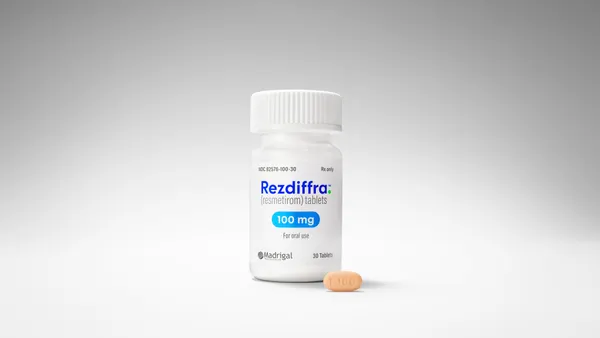Raise your Voice Letters Information for Real-World Value Messages The combination of hands-on resources of a CRO supplemented with information from health-insurance claims allows for faster patient recruitment and more bang for the research buck. – Nancy A. Dreyer, MPH, Ph.D. Building bridges There are other valuable resources for helping R&D bring the commercial perspective earlier into the drug-development process, beyond those discussed in the May issue. There are HIPAA-compliant methods that permit use of administrative health-insurance claims data to target doctors with patients of interest to expedite and enrich clinical research. Health-insurance claims data provide comprehensive information about illnesses, hospitalizations, prescription drugs, and the costs of these products and services. When claims data are coupled with information obtained directly from physicians and patients participating in trials and registries, a tremendous amount of information about diseases and users of particular drugs, including those of the competition, can be assembled. The combination of hands-on resources of a CRO supplemented with information from health-insurance claims allows for faster patient recruitment and more bang for the research buck. Understanding disease diagnosis and treatment patterns, prescribing practices, and healthcare behavior helps guide development of products to meet real needs, and can support marketing by providing information for real-world value messages. Nancy A. Dreyer, MPH, Ph.D. Senior VP, Strategic Account Development i3 Research Peri-Approval Services, an Ingenix Co. The trial must be the priority I read the May 2004 article – The Coordinator: The Heart of the Study – with interest having reviewed the statistics from the BBK survey several days earlier. I recalled reading an article several years ago entitled The Invisible Hand in Clinical Research: The Study Coordinator’s Critical Role in Human Subjects Protection [The Journal of Law, Medicine & Ethics, 30 (2002):411-419 (c)2002 by the American Society of Law, Medicine & Ethics] that quoted a figure of 128 different activities performed by study coordinators across 19 skill sets. These skill sets included everything from teaching skills to clinical skills to people skills. The study coordinator, according to the authors, has the challenge of serving three masters: the patient, the patient-turned-subject, and the study. Adding the difficulties of learning sponsor SOPs, new EDC systems, and HIPAA compliance has only increased their responsibilities exponentially. This leads to the question: Do study coordinators have the time to fulfill the most important function they have in the clinical-research arena – the protection of, and ethical treatment toward, human subjects? According to the results from the BBK survey, if a coordinator is responsible for more than two to three trials at any one time, there isn’t enough time in any given week to complete all the functions required of them and devote time to continuing-educational activities. Our own anecdotal evidence from years of experience in working with coordinators and impromptu polling at industry events supports these findings. While continued training is essential and certification provides measurable standards, coordinators must be dedicated full time to their clinical duties and be provided with adequate support to safely and ethically conduct the functions of the protocol(s) at hand. Investigators must realize that coordinators, while responsible for everything from patient recruitment to patient retention to patient completion, are already overburdened and priority to the trial must prevail. Tom Sturgis President Integrated Clinical Trial Services No winning for trying Our industry has become a sitting duck. When we raise drug prices, we’re accused of being profit mongers. When we lobby against drug importation, the public blames us for seeking drugs outside the United States. When we provide drugs to third-world countries, our act of kindness is viewed with suspicion. Now the Medicare Discount Card has been launched, and the public has focused its anger on us, yet again. Follow the Medicaid Discount Card trail and the public-relations blunders become self-evident. While the government predicted high participation, sign up has been paltry. No one anticipated the negative reaction from consumers. Many were confused because there were too many choices and no easy way to compare them. Others were frustrated because they felt “used” by the system. Then there were the 400,000 consumers who tried calling the Center for Medicare/Medicaid Services for information … and couldn’t get through. Rather than focusing the anger and frustration on a system that wasn’t working, these emotions were deflected onto our industry. Consumer advocacy groups, such as Families USA and AARP, produced “studies” comparing drug prices and inflation and accused the pharmaceutical industry of making discount cards virtually unusable because of fluctuating drug prices. PhRMA did its best to counter the pricing comparison studies. But by calling the groups’ studies “flawed,” PhRMA’s response may have just added fuel to the fire. Now we’re attacking the very consumer groups that wield significant influence. When will we realize that it is far better for our industry to work with – rather than against – consumer-advocacy groups? When are we going to understand that no amount of counterattack will improve our reputation? And finally, why do we continue to ignore the issues if we know they won’t disappear? With the presidential election looming, healthcare and drug pricing will be key issues for both major candidates. The Sanofi and Aventis union, which is scheduled to be finalized this summer, will draw significant public attention. This consolidation may be positive press for the business columns, but it won’t be long before consumer advocates take to the streets and accuse our industry of profit hoarding because the big have gotten bigger. Perception shapes public opinion, which ultimately affects reputation. We have done a phenomenal job shaping brand perception to our physician markets. Yet, we seem to falter when it comes to shaping consumers’ perception of the industry. Ultimately, the industry’s reputation no longer shines. It’s time for our industry to highlight and showcase those pharmaceutical companies that are making a difference, companies that are working side by side with consumer-advocacy groups and building relationships with the various communities. Ultimately, these select few are helping to reshape the public’s perception of our industry. More companies need to join them. Perhaps in time, the industry will again be viewed as advocates for consumer health. Marita Gomez CEO HealthInfo What’s Your Opinion? Registering results: a public database of clinical-trials information GlaxoSmithKline has announced that it will publish clinical-trial results for marketed medicines on the Internet. GlaxoSmithKline is defending itself in a lawsuit that claims the company suppressed negative data on one of its drugs. The company has stated that, independent of the pending litigation, it will create an electronic database to be called the GSK Clinical Trial Register, which has been in development for some time and which it plans to make accessible to doctors and the public. “The GSK Clinical Trial Register will be a major advance in providing online access to information to support patient care, facilitating access to study summaries by putting them on a single Internet site,” Tadataka Yamada, GSK chairman of research and development, said in a published statement. A group of editors from leading medical journals said they were considering a proposal that would require drug manufacturers to register their clinical trials in a public database once the trials begin. In a published article, The International Committee of Medical Journal Editors said such a database would allow the public to see if results are submitted on schedule or look for a pattern of companies quietly dropping trials that do not have the hoped-for outcomes. The American Medical Association also is calling for disclosure of all medical studies to the public. PharmaVOICE wants to know: Should companies have to register their clinical trials as they are initiated in a public database? What’s your opinion? Please e-mail your comments to [email protected].
An article from










